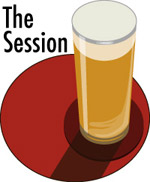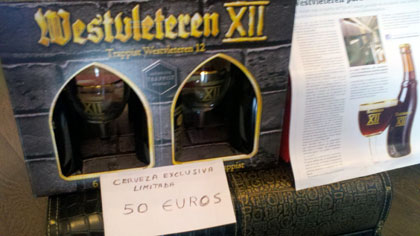Mike Veseth, author of Wine Wars, has checked in with his thoughts on Andrew Jefford’s “The Wine Writer is Dead” that has attracted much attention from wine writers and bloggers. (The full speech is here, and Jamie Goode’s excellent commentary is also worth your time.)
Jefford gave his speech at meeting of European wine bloggers. That’s the context. I read Veseth because he often presents a “sideways” view, with economics often at the center of the conversation (his blog, after all, is called The Wine Economist).
I’m not really worried about whether wine writing is dead or alive. I’m more interested in wine reading, which I specifically do not define as reading about wine exclusively in paid (generally print) publications. Wine reading seems to be changing dramatically and that’s the more interesting trend. Unsurprisingly, I tend to think about this in economic terms.
Economists who study the economics of food choice believe that a key factor in the growing consumption of high fat fast food is cost — fast food is relatively cheap both in terms of money and time, which are strong economic incentives. Even when healthier food is available and consumers understand something about nutrition the economic incentives push and pull them into the drive-through lane on the margin.
I think the economics of readership (and wine readership) works the same way. I’m not saying that writing on the internet is the intellectual equivalent of “empty calories,” but the shift of readership from traditional print publications to electronic media is influenced by economic incentives (as well as other factors of course).
At this point my mind went another direction than Veseth’s essay, thinking instead about how the shift to online information consumption (which may include entertainment, and may or may not take the form of reading) might change beer, or if it makes a difference at all. By beer I mean something beyond measurable changes to what’s in my glass (those still matter) — my overall beer experience.
Quite obviously, it is now cheaper — ah, the economics — and easier to reach a larger audience (and the beer audience is becoming bigger still). One example of how that can provoke change: It’s pretty well understood that Über beers get the bulk of the attention at beer rating sites and therefore promote big beers. However, how much attention would Lew Bryson’s The Session Beer Project have received in an all-print world (OK, with a bit of usenet chatter thrown in)? So there’s one for small beers.
And yesterday there were a couple of hmmm moments. First, a report from Shanken News Daily about how “bars like to feature the newest brewery in town or the hottest brand fueled by social media” created a flurry of conversation on Twitter. Later, Charlie Papazian asked “Do you give a damn about who makes your beer?” and opened online voting on the topic. Of course, I care. That “where” matters (as ingredients, and human involvement, and a few other things) is pretty much the premise behind this blog.
But while I think that MillerCoors should make it clear to consumers that it owns and operates AC Golden Brewing within the confines of its giant Colorado brewery I’m as interested in the rest of the story about the beers being brewed there. Is somebody going to that? How? I haven’t seen it in print. Will I online?
I don’t expect you to share my lifelong fascination with what used to be called “print” or even how stories are told. Although I take particular joy in being able to use words to describe walking in an experimental hop yard with a plant breeder, I understand there’s every chance that photos, a bit of audio, even video might work better for many (OK, most) consumers. These new fangled devices provide the opportunity to create something like The Long Strange Trip Dock Ellis from ESPN.com. Go read. Feel free to insert you own expletive, as [expletive] wow.
The point is not the medium, of course, but the message. The best beer-related example I can point to is Evan Rail’s Beer Matters, which is clearly on message but lacks the Dock Ellis Treatment. It runs more than 6,000 words, longer than you’d ever read in a beer print journal.
It seems it could only exist in this new medium. Of course, the essay costs $1.99 to read. It always comes back to economics, doesn’t it?
 David J. Bascombe has recapped the The Session #70: Don’t Believe the Hype. Lots of interesting thoughts, and — this is one point of The Session — I added a few more bloggers to my “read regularly” list. Oh, and I still don’t believe the hype.
David J. Bascombe has recapped the The Session #70: Don’t Believe the Hype. Lots of interesting thoughts, and — this is one point of The Session — I added a few more bloggers to my “read regularly” list. Oh, and I still don’t believe the hype.